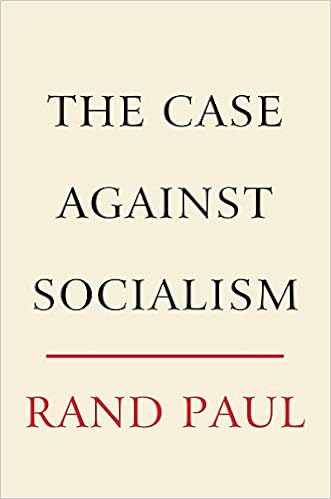Then the trump card is played by the Democratic Socialist - it is the Scandinavian countries that are the Socialist success stories! That is what we want! Denmark, Sweden, Finland and Norway. They are the socialist successes.
Paul demolishes this nonsense, quoting the Scandinavians themselves - demonstrating that they have a Free Market economy and quoting Scandinavian officials denying the charge. Simply put, Scandinavian success is build on Capitalist success
"If government ownership of the means of production is the sine qua non of socialism, the facts argue quite convincingly that the Scandinavian economies simply are not socialist." p. 80
Then, Paul focuses on the issue of income inequality, the issue of the modern socialists like Bernie Sanders and Alexandra Ocasio-Cortez. Quoting Dalibor Rohec, Paul begins his common sense attack on this pivotal issue:
"If one cares about the welfare of the poorest and most vulnerable Measures of inequality tell us nothing about the living conditions of the poor, their health and their access to economic opportunity." p.53
This is, of course, true because economic inequality may be very small - and everyone be poor. Pakistan, Ethiopia or Venezuela all have better income inequality rates than the US - or here, for that matter - but that is because they are all equally poor. These are well worn arguments - to which there is little comeback from today's elite. Nothing more than invidious moralising and Ad hominem.
"He [Pot] achieved, more than his predecessors, the true goal of abolishing all private property and he didn't seem to mind if it took more than a few broken skulls." p.197
Paul moves from this to an analysis of Hitler's socialist underpinnings - starting with the name of the party and then demonstrating the policies of the regime. Following this is some trenchant inquiry into Maoism, Stalinism and the Khmer rouge. More devastating links to the inevitable authoritarianism that follows socialism.
He looks at the 'Green New Deal' of the American left and ends opining on the virtues of Capitalism and that 'free markets make free people'. My hope is with him in that I desire people choose liberty too. It is a very libertarian ending - but it has great moral force.
Wedged between these last two sections is the most fascinating bit of the book - and the part in which I am still thinking through. Part IV is entitled 'Where are these angels? The philosophy of Socialism. I needed to read carefully here - and indeed this section is the part of the book that is harder to follow - one needs some familiarity with the philosophical ideas to follow the thought process. Also, not being a Libertarian, particularly an Ayn Rand Objectivist, I needed to weigh my thoughts carefully.
Paul argues from Plato's brand of state governance, past Thomas More's Utopia through to Hegelian dialectic that is so intertwined in Utopianism of all stripes. Here is a scathing denouncement of Historical determinism. It is hard to disagree with Paul here - it is an interesting take. Using Karl Popper to undermine the case of determinism and the connection to utopianism, Paul makes his case stronger. However, he then mounts are argument that is close to my heart - we'll call it the argument from Dostoyevsky; for want of a better term. Using the masterful Notes from Underground, Paul launches an attack on the magisterial use of reason to justify Utopianism.
Paul is correct that utopianism is the point of the philosophical conflict behind these different political visions, and in a unexpected twist, he unravels Fukuyama - and other Neoconservatives for sharing the Hegelian historical determinism in defense of a Liberal democracy. He ends with these sage words:
"From my perspective, the cautionary moral of a utopia is: don't succumb to any end-of-history utopias from the right or the left. Don't accept any preordained linearity to history." p. 243
There is no doubt that this philosophical section is the apogee of the book. However, the denouement should be stated again. Namely that 'Freedom should bring us together.
I remain decidedly not a libertarian, I do not agree with Paul on any number of his policies that reflect this libertarian bent. However, I am in lock-step with this withering critique of the detritus of socialism. It is true - Freedom should bring us together. And perhaps that is the angle that one should take in the light of these repressive Covid19 lockdowns. The constant intoning of the safety of the Collective, can only be undone with a rallying cry of Freedom.
Addendum:
This is politics and 'Politics ruins everything'. As a Christian, freedom is most certainly the answer. Moreover, Freedom - rightly understood - is freedom in Christ. I have no doubt that terrible times are coming and they are known by God. His providence is at work nonetheless - and freedom in Him ensures that we need not fear the trouble that is to come. Politics will never bring peace. Peace comes in the sky with the Prince of Peace. This is NOT historical determinism - rather, this is the plan of an omniscient God.
1598 Words
4 1/2 Stars

No comments:
Post a Comment